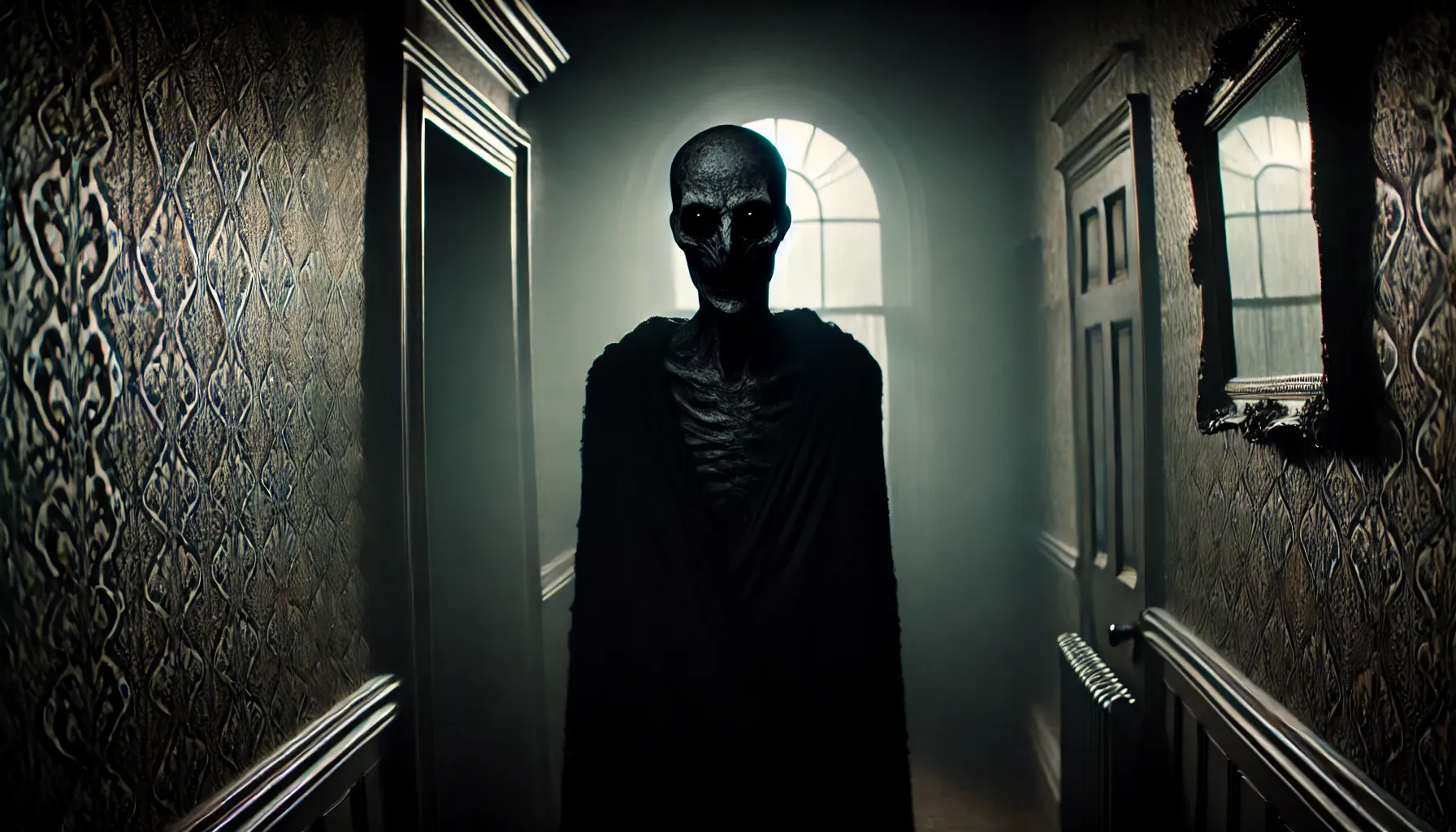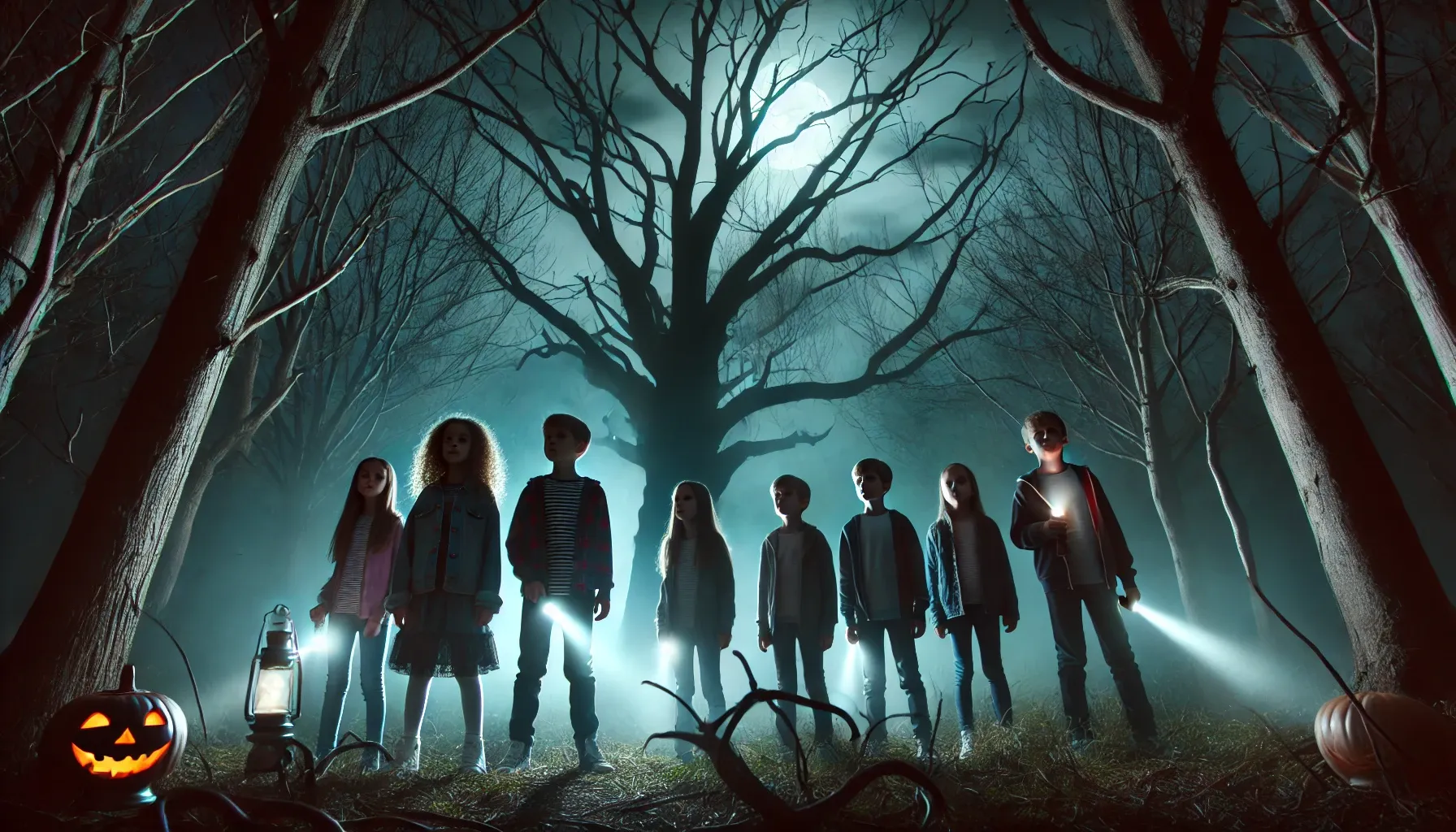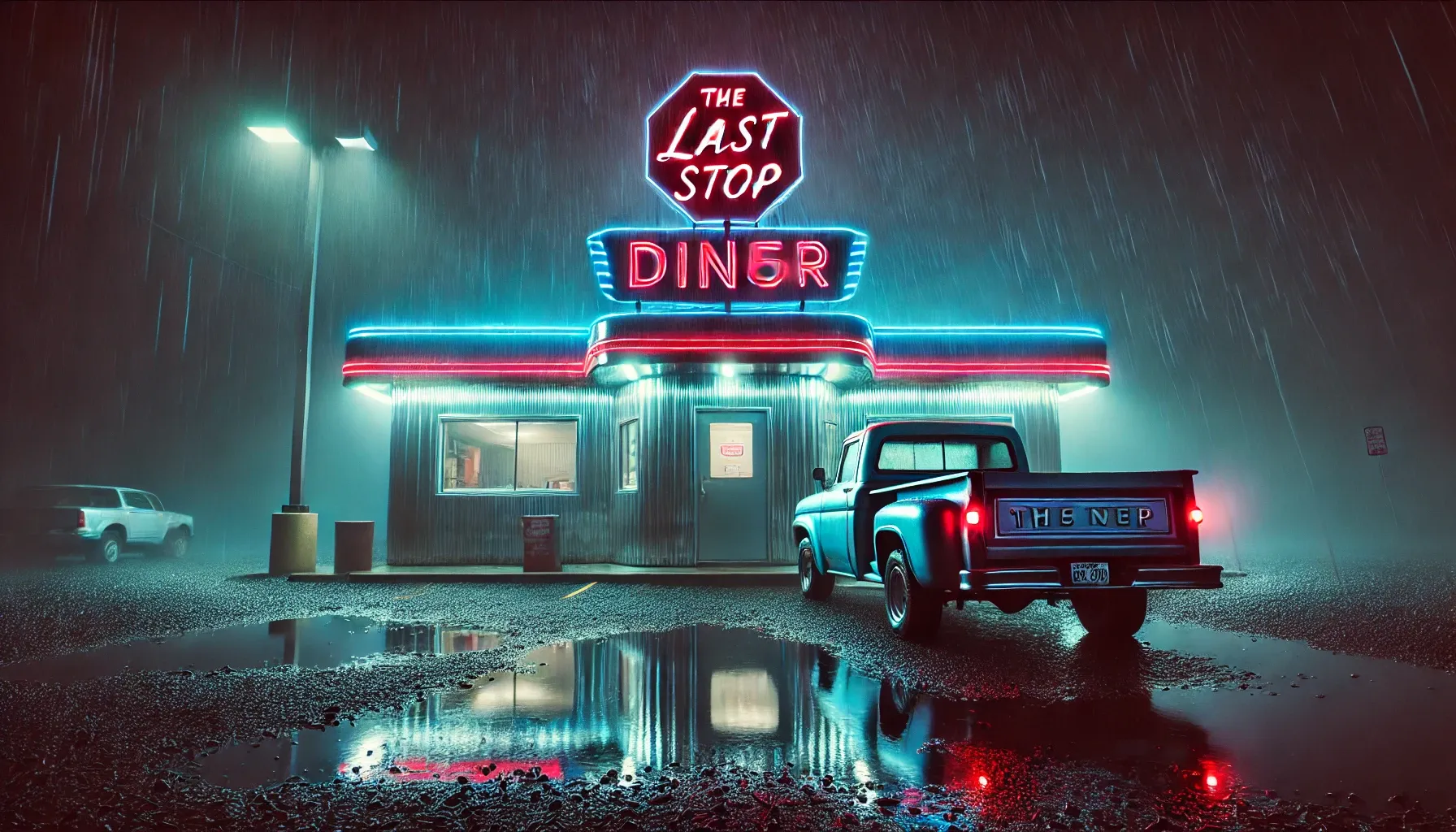Ethan Caldwell had spent most of his fifty-seven years trying to escape his own mind. A retired police officer with a penchant for bourbon and solitude, he thought he’d left behind the worst of it when he moved to Waverly, a town so small it seemed time had forgotten it. When he saw the flyer advertising an estate auction for the old Hawthorne house, curiosity got the better of him. By the end of the week, he was holding the keys to a decaying Victorian relic that seemed to sag under the weight of its own history.
The locals didn’t talk about the house much, and those who did spoke in hushed tones. “That place is bad news,” one of them warned, but Ethan dismissed it as small-town superstition. To him, the house was a project—something to occupy his restless hands and distract him from the memories that clawed at him in the quiet hours.
The house greeted him with groaning floorboards and a musty scent that seemed to cling to every surface. The wallpaper was peeling, and cobwebs draped the corners like forgotten curtains. The real estate agent had called it a "fixer-upper," but Ethan knew it would take more than a coat of paint to breathe life back into the place. The front porch sagged dangerously, and the windows were so caked with grime that even the midday sun struggled to penetrate the gloom inside.
The Whispering Walls
It started on his second night in the house. Ethan had been sanding a patch of warped wood near the staircase when he heard it: a faint whisper, barely more than a breath, coming from the direction of the dining room. He paused, holding his breath. The sound stopped.
"Old houses make noises," he muttered to himself, dismissing it. But the whispers came back—soft, insistent, like wind through a crack, only there was no wind. They seemed to come from the walls themselves, carrying fragments of words he couldn’t quite piece together. It sent a chill down his spine.
By the end of the week, the whispers were joined by other phenomena. Objects weren’t where he’d left them. Lights flickered, even though the wiring had supposedly been updated. The air grew colder at odd times, and shadows seemed to stretch unnaturally long in the dim light. And always, the whispers. At night, he found himself waking suddenly, his heart racing, convinced that someone had been standing at the foot of his bed.
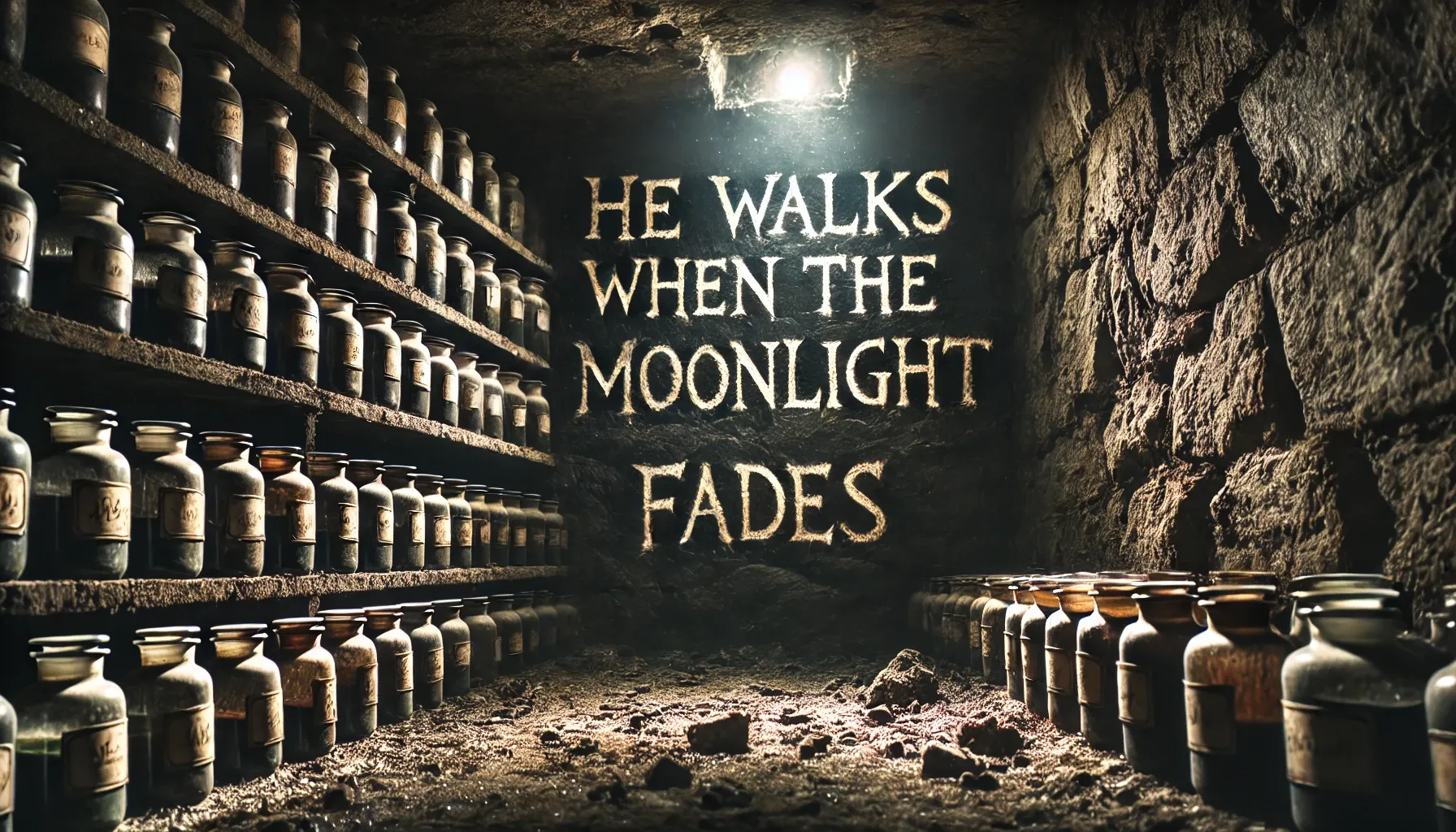
The Hidden Basement
Ethan found the basement by accident. He’d been clearing out the kitchen pantry when he noticed the faint outline of a trapdoor beneath the peeling linoleum. It took some effort to pry it open; the hinges groaned like a living thing. Below was a set of narrow wooden stairs, descending into darkness.
The air in the basement was damp and oppressive, carrying the scent of earth and mildew. He descended with a flashlight, its weak beam cutting through the gloom. The basement was small, its stone walls lined with shelves holding jars of unidentifiable substances long past their prime. The jars—clouded glass containing things that might have once been vegetables or something less benign—seemed to watch him. But what caught his attention was the far wall.
Scratched into the stone, as if by desperate hands, were the words: "He walks when the moonlight fades."
Ethan’s flashlight wavered as he stared at the message. Beneath the words, etched in smaller, messier script, was another line: "Don’t look into his eyes."
The walls themselves seemed to lean closer as he read the warning. The air thickened, and a faint noise began to grow. It wasn’t quite a whisper this time but something deeper, a sound that resonated in his chest like a distant hum. He fled the basement, leaving the trapdoor open in his haste.
The Hollow Man
The whispers grew louder after that, their words clearer but no less cryptic. "The Hollow Man is here," they said. "He watches. He waits." Ethan started dreaming of a figure—tall, gaunt, with empty black pits where its eyes should be. The dreams always ended the same way: with Ethan waking in a cold sweat, his heart pounding as if he’d been running for his life.
He tried to rationalize it. Stress, he told himself. Too much work on the house, too little sleep. But the figure lingered even in his waking hours. He’d catch glimpses of movement in the corners of his vision, shadows that stretched and warped in impossible ways. He avoided mirrors, afraid he might see something standing behind him.
One night, as he worked late in the living room, he heard a loud thud upstairs. It was followed by slow, deliberate footsteps. He froze, every instinct screaming at him to run, but his feet wouldn’t move. The footsteps stopped just above him, and then the whispers began again, louder than ever.
Ethan grabbed a crowbar from his toolbox and ascended the stairs, his pulse hammering in his ears. The upstairs hallway was dark, the single bulb overhead casting long, flickering shadows. He followed the sound to the master bedroom, where the door stood ajar.
Inside, the room was empty—or so it seemed. As he stepped inside, his flashlight flickered and died. In the sudden darkness, he felt it: a presence, heavy and suffocating, standing just behind him. The whispers rose to a crescendo, a chaotic symphony of dissonant voices.
He turned, swinging the crowbar wildly, but there was nothing there. Only shadows. His chest heaved as he stumbled back into the hallway. But as he retreated, he saw them: faint scratches on the wooden floor, spiraling outward from the spot where he had stood. They seemed to spell something, but his hands were shaking too badly to decipher it.
The Newspaper Clipping
The next morning, Ethan decided he’d had enough. He planned to pack his things and leave, house be damned. But as he moved to gather his belongings, he noticed a yellowed piece of paper on the kitchen table that hadn’t been there before.
It was a newspaper clipping, dated decades earlier. The headline read: "Mysterious Disappearances Linked to Hawthorne House." Beneath it was a photo of the house, looking much the same as it did now. The article detailed a series of disappearances, all tied to the house—and all ending in whispers of a figure known only as "The Hollow Man."
In the margins of the clipping, scrawled in what looked like dried blood, were the words: "You can’t leave. Not yet."
The shadows in the kitchen seemed to deepen as he stared at the paper. He felt a cold breath on the back of his neck and spun around, but no one was there. The silence in the house had become oppressive, a tangible weight pressing down on him.
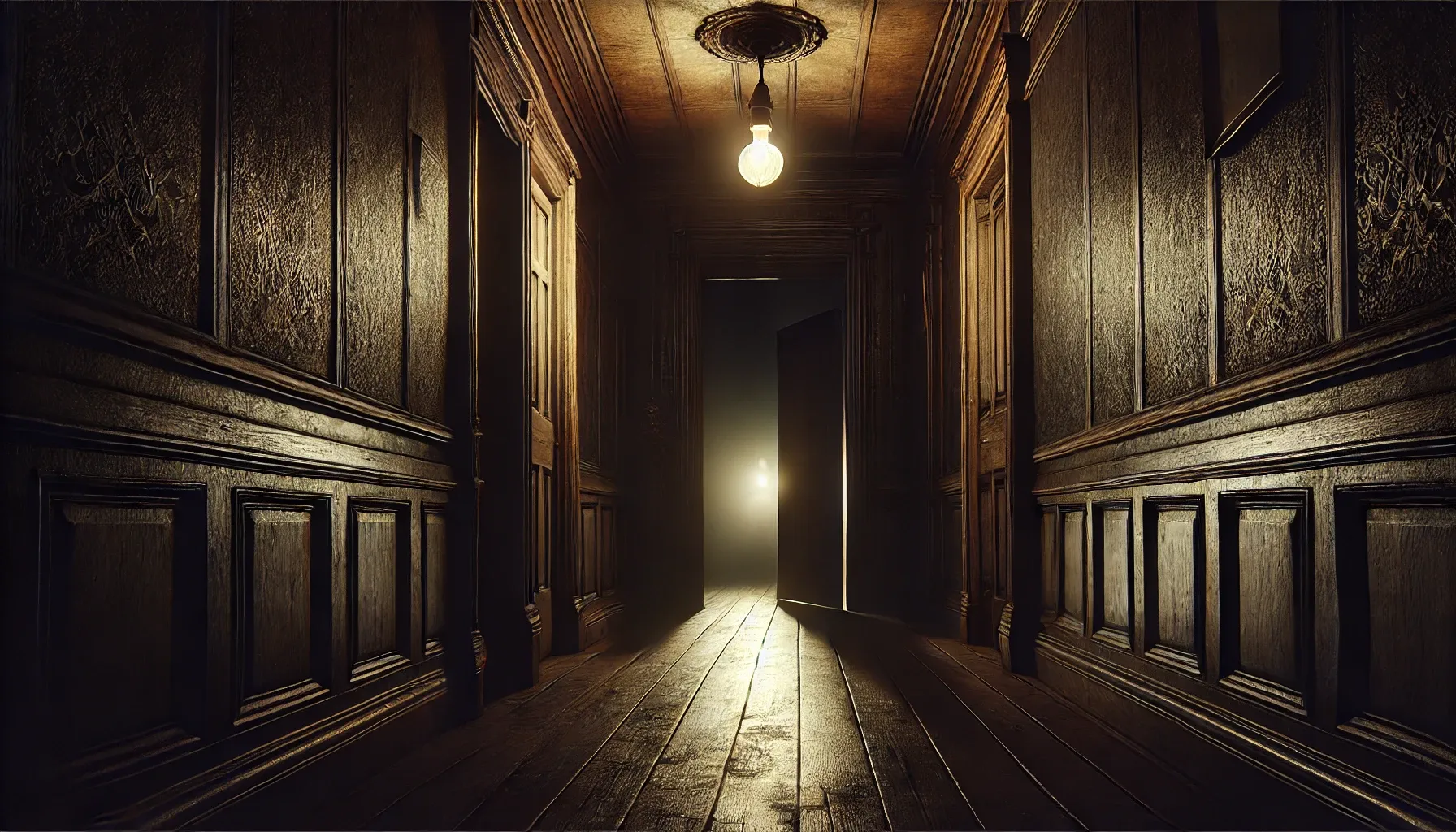
The Last Stop Connection
Among the scattered debris in the basement, Ethan found something else: a crumpled receipt from The Last Stop diner. It listed a single item: coffee, black. The name on the receipt was smudged, but the date was recent—too recent.
Ethan stared at the slip of paper, his hands trembling. The whispers seemed to laugh around him, their dissonant tones echoing in his skull. He felt the walls closing in, the shadows creeping closer. His flashlight flickered to life in his hand, but the beam barely seemed to penetrate the gloom.
And then, just as suddenly as it began, the noise stopped. The house fell silent, its oppressive air lifting for a moment. But Ethan knew better. The Hollow Man was still there, watching, waiting. He wouldn’t let Ethan leave—not yet.
As the moonlight faded that night, Ethan heard footsteps again. This time, they didn’t stop.


